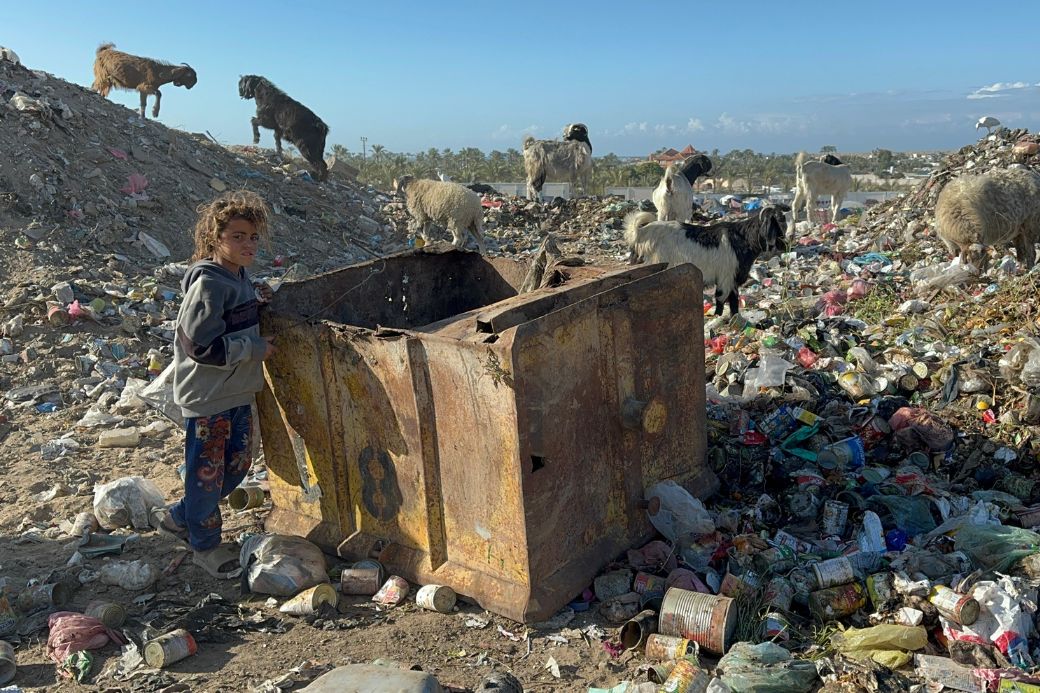In Gaza, food is now almost impossible to find, and when it is available, it is often unsafe to eat. The cost of the few remaining food items has become prohibitive for most of the population, and cooking gas – now only available on the black market – can cost up to 100 dollars per kilogram. As a result, nearly two-thirds of the population are forced to cook by burning waste, with extremely serious health consequences. In the most extreme cases, families are even forced to eat scraps found in rubbish or expired food, while in overcrowded camps infested with rats and parasites, every meal poses a real risk of contamination.
In these conditions, cooking safely is practically impossible. And the reason is not only the lack of food, but also the dramatic shortage of clean water.
9 out of 10 people in the Strip do not have access to enough water, and the situation is worsening by the day. Local production has collapsed, safe supply points are increasingly scarce – often located in militarised areas or subject to evacuations – and the number of displaced people in the camps continues to grow relentlessly.
But it’s not only about quantity. Most of the available water is not drinkable, contaminated by high salinity and biological waste that has seeped into the aquifers. The impact on health is devastating: acute watery diarrhoea now accounts for a quarter of all reported illnesses in the Strip, mostly affecting young children. The risk of cholera is increasing, and the high salinity damages kidneys and worsens dehydration. People are often forced to resort to using seawater directly.
Cooking with contaminated water means exposing families to infections, poisoning, and debilitating diseases. This contributes to a vicious cycle between malnutrition and illness: malnourished children fall ill more easily, and common diseases like diarrhoea, measles and pneumonia can become potentially fatal. In turn, these illnesses increase nutritional needs and reduce nutrient absorption, worsening overall health. Without access to clean water, safe food and medical care, the consequences can be permanent: stunted growth, cognitive delays, and compromised health for an entire generation.
It is in this context that clean water takes on fundamental importance.
Since the beginning of the war, CESVI has been working to distribute safe water through water trucks that are supplied by the few desalination plants still in operation. This intervention has already reached over 89,000 displaced people in 70 different camps across the Gaza Strip. Providing clean water means allowing families to drink without falling ill – but also to cook the little food available in a safer way.
